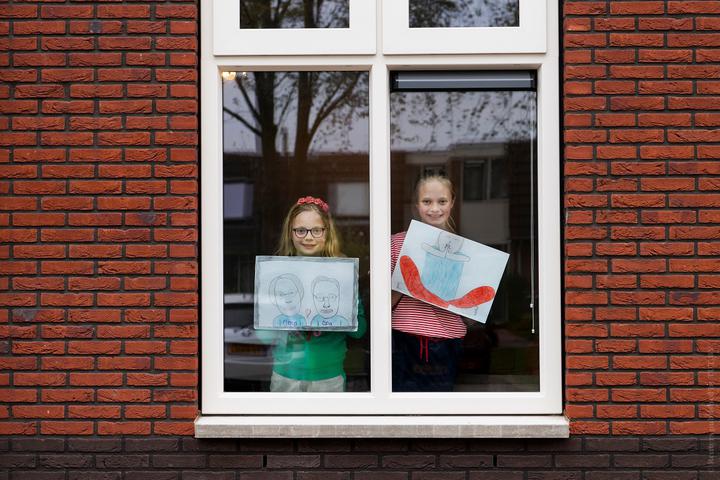Escape from lockdown: which countries mitigate quarantine
Several European countries this week are easing the stringent isolation measures introduced due to the SARS-CoV-2 pandemic. Others intend to remove a number of restrictions.
Since April 27, several countries have gradually weakened the quarantine measures introduced for the population and businesses due to the SARS-CoV-2 coronavirus pandemic. Some of the EU countries are among the first on the way to exit the lockdown.
Czech Republic will be the first to open borders in the EU
Czech Republic was the first of the EU countries since April 27 to open borders for its citizens. This was done against the background of the fact that the number of new cases of COVID-19 disease continues to fall in the country.
The reason for the mitigation of quarantine was the court decision last Thursday, which recognized the government’s earlier measures to combat the spread of coronavirus in violation of the country’s laws. “You can go abroad, even on vacation. But everyone who returns will have to confirm the negative result of the coronavirus test or spend two weeks in home quarantine, ”said Adam Voitech, Minister of Health of the country.

The entry of foreigners into the Czech Republic is still limited, exceptions are made for entrepreneurs from the European Union. From April 27, stores with an area of up to 2.5 thousand square meters will resume work in the country. m and driving schools. And universities will be able to restore training, but with a limit of up to five people on the premises.
Hairdressers to open in Switzerland and Austria
Quarantine measures are also mitigated by the two alpine republics of Switzerland and Austria. In Switzerland, for example, hairdressers and physiotherapists, as well as household services companies, will resume work from April 27. The authorities are going to open schools after May 11, but the bars and restaurants will remain closed until at least June 8.
This week, Austria also expects a softening of the quarantine regime: from May 1, stores, hairdressers, nail salons and so on will open.
With restrictions, restaurants will open. Institutions should not work later than 23 hours, employees are required to wear masks, the number of visitors and their location in restaurants will also be strictly regulated, explained Austrian Chancellor Sebastian Kurtz. Kurtz promised to present the details on April 28. By mid-May, churches may open in which services will be held, but the decision will be made depending on the dynamics of the number of patients, the Austrian leader emphasized.
The Netherlands will allow children team sports
From Monday, April 27, quarantine measures in Lithuania will come into force: museums, libraries, street cafes, as well as hairdressers and beauty salons will open. Sports fields such as golf and tennis are available at the sports fields. Zoos and botanical gardens will also open. Earlier, last Thursday, the authorities allowed to open all retail stores, including those operating in shopping centers. This decision was made simultaneously with the extension of the lockdown until May 11.

The Netherlands will go even further. From May 11, quarantine measures will mitigate against children. Kindergartens will open, and primary school classes will be “half-hearted”: classes will be divided into two or more groups to reduce the risk of disease. The remaining students should gradually return to school from June 2. In deciding to weaken quarantine measures, the Dutch authorities rely on statistics, according to which of the 34 thousand people infected in the country, only 147 were under the age of 14, of which only 47 went to the hospital.
Starting in late May, students will be allowed to play sports, including team sports with physical contact. Pupils under 18 years old will be allowed sports, but only one in which you can observe a distance of 1.5 meters, for example table or tennis. Sports clubs will also be able to resume classes, but only individual sports will be allowed.
Spain: softening, but quite a bit
Spanish authorities are weakening one of the most stringent quarantine measures in Europe. Since April 26, all children under the age of 14 are allowed to go out – without restrictions. The government officially apologized to the children for previously imposed restrictions. “It was not at all easy for you, so we apologize to you,” said Pablo Iglesias, the country’s deputy prime minister, at the end of last week.
The Canary Islands are planning to leave the lockdown as the first of the regions of Spain, starting with Homer. No new cases of disease have been recorded on this island since March 29. Further mitigation is possible in the second half of May, said Spanish Prime Minister Pedro Sanchez.
New Zealand hopes to completely get rid of coronavirus
New Zealand authorities are weakening the lockdown amid the fact that the number of infected has almost stopped growing, not exceeding 20 cases daily, and last week, on Thursday, only three new cases of SARS-CoV-2 infection were recorded.
“We have the opportunity to do something that other countries have not been able to get rid of the virus,” said the country’s Prime Minister Jacinda Ardern earlier.
From April 27, some enterprises and schools will resume work, followed by a relaxation of restrictions on internal displacement. In addition, it will allow meetings of up to 10 people, in particular for weddings and funerals. On Monday, the government will discuss further mitigation measures: restrictive measures in New Zealand were considered one of the most stringent on the planet.
Who has previously quenched quarantine
Since April 20, Denmark and Norway have softened quarantine measures. Small business enterprises resumed work in Denmark, schools and kindergartens were opened. Kindergartens have also opened in Norway, and schools will open from April 27 for students in grades 1-4. At the same time, Norwegians are being urged to use a voluntary mobile application to track infected COVID-19.
Also earlier, the Polish authorities went to some measures to mitigate quarantine, allowing them to walk in parks and forest parks. Increased the maximum number of customers in stores. Warsaw plans to weaken or strengthen quarantine measures gradually – depending on the development of the situation.










